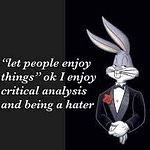In her 1983 novel Heartburn, Nora Ephron wrote, “I became the kind of romantic only a cynic is truly capable of being.” This is the tension at the heart of all romantic comedies: we acknowledge that it’s a fairy tale, a type of genre film as much as fantasy or sci-fi is, and yet we yearn for it. We briefly believe it’s real.
But, we don’t really make rom coms anymore. The media has been heralding the end of the rom com since at least 2013. Action and adventure movies dominate screens and box office numbers. These CGI-heavy films rely on winking at the audience and hiding “easter eggs” for fans, so self-consciously aware of its audience that it’s hard to see a film through the layers of self-reference. Action, not romance, is the subject of our films, and the stories are told with a level of ironic detachment that reveals what is really at the heart of our culture: generating internet discourse, producing gifs, and prodding the audience to point at the screen and say, “oh look, it’s [IP I recognize].”
Our culture is so steeped in irony that we’ve become alienated from desire. As RS Benedict writes in their fantastic essay “Everyone is Beautiful and No One is Horny” about modern movies, in “[a] room full of beautiful, bare bodies … everyone is only horny for war.” No one is ever really horny in Nora Ephron movies either, but they ache for human connection, for an antidote to loneliness. There’s real attraction and chemistry between the characters. Human feeling, not spectacle, is central to the plots and characters.
Woman characters, when we do see them in big Hollywood movies, are imbued with so much post-MeToo, post-Trump, 5th wave feminist weight that they come off as empty shells of AI-generated girlbosses. An occasional film like Eighth Grade breaks through, but mostly, we’re inundated with superhero fare like Wonder Woman and powerful women biopics like On The Basis of Sex, that foreground women’s strength and ignore their humanity. It’s hard to feel like roles for women have improved when every female character is basically Faye Dunaway in Network (and we’re meant to believe that’s a good thing!). In the era of Captain Marvel, the faux-empowerment of tough, mean women as the new standard of femininity feels alienating. Anyway, most women don’t occupy these roles in their real lives. No matter how many Supergirls and CEOs we see onscreen, most women aren’t bosses — literally or figuratively. We have only a little power, and seeing a non-stop parade of super women is exhausting. In the context of the last two years especially, when women are feeling the burdens of work and domestic labour more acutely than before, it just doesn’t feel authentic.
The shift from the now archaic world of Sex and the City to the more modern womanhood of Girls, Broad City, and Insecure feels almost alienating, even if the narratives reflect how we have relationships now. Women who came of age on the latter are settling down later and in less conventional arrangements. More power to them! But we can’t deny there has been a shift in how women in real life and onscreen articulate desire, and what the objects of desire are.
I experienced it first via Broad City, a show that I watched religiously in my early 20s, which defined my own relationship to dating and marriage. Ilana and Abbi are not relationship girls. This became the standard, too, for me and my friends, fighting through the world of Tinder and casual dating. We resisted labels and deep conversations, and we never asked for what we wanted. Unlike the heroines of Sex and the City, who ultimately settle into monogamous, heterosexual bliss, Ilana and Abbi are comfortable staying single. More than comfortable, it’s a natural state, one worth luxuriating in rather than despairing the way a character like Charlotte York does when she exclaims, “I’ve been dating since I was 15, I’m exhausted, where is he?” Accepting singleness as a justifiable way for women to be is positive, of course. But the more I am honest with myself and my desires, the more I identify with Charlotte, with Sally Albright crying, “I thought he didn't want to get married. But, the truth is, he didn't want to marry me!” It’s an emotionally honest moment at odds with the new type of woman we expect in the stories we consume. These expectations are borne from the eras in which When Harry Met Sally… and Sex and the City were rewriting the narratives for women, of women experiencing new freedom and new expectations, trying to figure out the new rules. But instead of writing our own rules, we just got a new unfair standard to live up to: the cool girl who doesn’t have relationships, never asks for commitment, and keeps her vulnerability hidden. There’s a faux empowerment about existing outside of standard relationships.
The framework shift gives rise to media that promotes the idea that women should be single and untethered, and that to be in a monogamous relationship is old-fashioned. Even Sex and the City’s reboot series had to take an axe to one of the series most beloved, monogamous pairings to fit in the new, modern world of prestige TV. But modernity is kind of a drag right? Too irony-soaked about love, too earnest about politics, too disconnected from desire.
I say, it’s time for a Meg Ryan renaissance. Bring back women who believe in love. Bring back adorable, sweet, smart, strong women who don’t have super powers or positions of power. Bring back close female friendships, yearning for commitment, and having a career without making it your life.
Meg’s characters have always resonated with women. It’s easy to see yourself in her everywoman nature. She feels like your friend, which is why I can’t bear to follow Canada Press guidelines and call her “Ryan”. She represents women as we are, struggling with our desires in the modern world, rather than the Katherine Heigl-type who has the world by the balls. I’m sure that’s how some women experience the world — but it’s not how I do. Meg represents a fantasy, but it's one I can imagine myself in, because she represents me, even if I’m not a blonde, upper class New Yorker.
The classic Nora Ephron-penned heroine, as played by Meg is quirky, smart, and a bit emotional. She is witty and particular, but soft and sweet. Meg is a woman with a pink kitchen and a fluffy housecoat and a VCR stacked high with old movies. She is vulnerable and resilient at once, believing in love even when it leaves her empty and hurt. The women of modern rom coms are jaded and bruised, hiding behind high-powered careers so no one will ever get to know them. They’re women with penthouses and assistants and egos. Meg’s characters are more ordinary, special because of their quirks and passions, not their salaries.
Connecting with Meg’s characters and Nora Ephron’s writing on romance, her films occupy the same space in my life that Casablanca and An Affair to Remember do in her character’s lives. They’re the cheesy, comfort food of cinema that reveals the romantic desires we don’t dare speak. Rita Wilson crying about the end of An Affair to Remember is literally me describing the plot of any Ephron movie. It’s a funny but truthful moment about the power of cinema to connect us to our most embarrassing, base feelings. Under all the cynicism, even the twice-divorced Ephron loved the sentimental trash of An Affair to Remember. The kind of romantic only a cynic can be!
Women in modern rom coms are cynical, and their true feelings of love must be drawn out of them by a man. It’s framed as a more modern, feminist approach to romance on screen — the career woman, the alpha female who puts work before love — when really these films act as an admonishment to women, a continuation of the same tired question that never interested Ephron: can women have it all?
Love and career are almost never at odds in a Meg Ryan-Nora Ephron joint. A good career and a search for love are diametrically opposed in most romances post-2001. In the last ten years, the only romantic comedies being made come from Netflix or Hallmark and these films have leaned in hard on the divide. Our options are either the conservative parables of Hallmark, or the girlbosses of Netflix’s offerings (which are also inherently conservative!). Always Be My Maybe is one of the strongest recent rom coms, and even it falls into the girlboss trap.
Sally, Annie, Kathleen — Meg’s characters are decidedly not girlbosses, although Kathleen is a business owner, and Annie and Sally both work in media. These women are decidedly uncool, connecting us to some imagined Hollywood past as they articulate desire, cry about movies, and vent to their girlfriends. These characters strike me closer to the heart than 27 Dresses or How to Lose a Guy in 10 Days. The need to desire and be desired is one that women can’t articulate because culture has done a 180 — women don’t worry about “having it all” because career has become the only option. This is partly economic and partly cultural — many things are!
I’m not advocating for a trad lifestyle. Returning to tradition isn’t a solution, partially because it’s unrealistic in the economy we live in. No matter how much my friends and I dream of not working, or having a high-earning partner, it’s important for women to earn an income of their own. For most households, two incomes are necessary to pay rent and keep the lights on. But work isn’t life.
Like many women in the creative class (including most Nora Ephron characters), I enjoy a lot of the work I do. My career is important to my identity. I don’t want to give it up — but I define myself more by my relationships than my pay cheques. That’s why Meg’s rom coms still resonate with me most: careers are important, but they're merely a side character to the friendships and romantic relationships that give life meaning. A job you love is important, but it’s not everything, as these movies gently remind us, unlike the palm pilot-clutching women of 00s rom coms, who have to be bashed over the head to be reminded that love is a good thing.
I find great comfort in the optimism of When Harry Met Sally… and Sleepless in Seattle, even if it doesn’t feel real to me. When it came out, When Harry Met Sally… was written off as a Woody Allen knock off. Allen is a more cynical and therefore more honest writer on relationships than Nora Ephron. I love Annie Hall but the romance of When Harry Met Sally… serves as an antidote to the assumption in Allen’s films that it never works out, that we’re doomed to repeat our mistakes, that we will watch Woody Allen and Diane Keaton fall in love and break up many more times. We leave Harry and Sally believing he has overcome his cynicism and narcissism and fear of commitment. We believe Sally is learning to loosen up and to trust again. We want to believe love makes us better people. Maybe that’s why I cling to this movie — life has taught me that relationships look a lot more like Annie Hall, like two people hurting each other, coming back together and trying to make it work, and still failing at being right for each other. We leave Annie and Alvy never knowing if they figure it out.
When my ex and I got back together, it seemed like love had made us better people. He was more open; I was more confident. We were both more honest. I want to believe I changed because he loved me, or because I loved him, but truthfully, I changed because he hurt me. I changed to protect myself, reflexively, against another earth shattering romance. Love is meant to make you better, but we’re never just reacting to love; we’re reacting to vulnerability and fear and trust and all the other things that come along with it. We don’t know whether to let it consume us or not.
I love Annie Hall because it’s honest, and life has made me a bit of a cynic. But I love When Harry Met Sally…, Sleepless in Seattle, and You’ve Got Mail because deep down, I’m a romantic. It feels passe, but there it is. A little more honesty about our unfashionable desires would go a long way to undo all the alienating irony and detachment we swim in.












Share this post